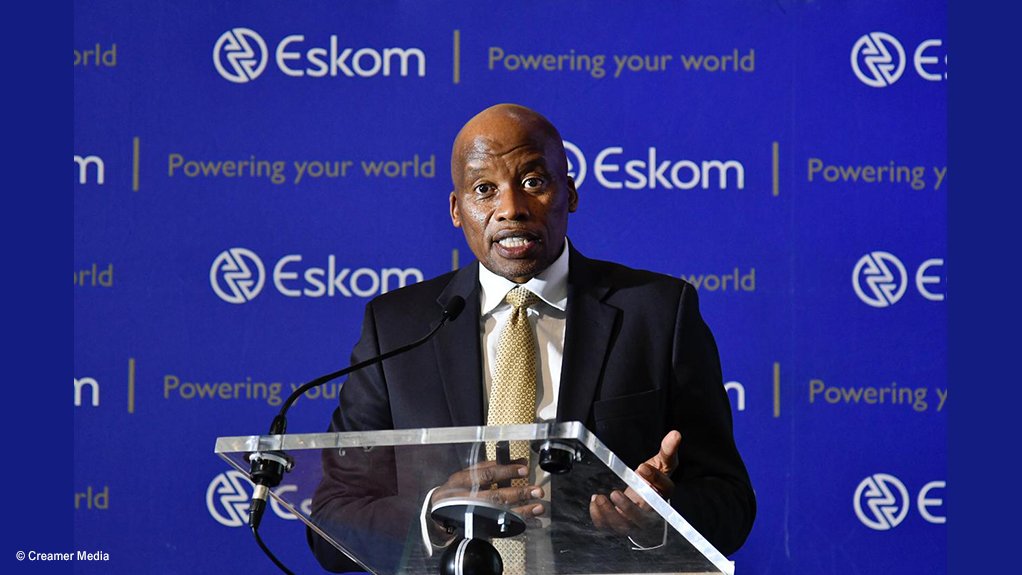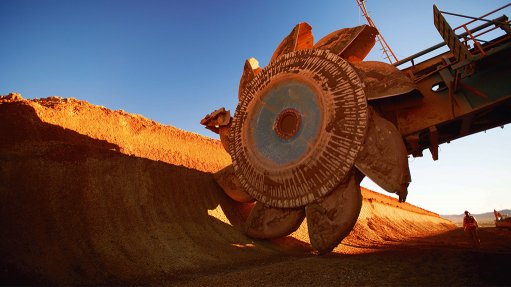Eskom confirms winter load-shedding risk and warns on diesel costs
Electricity utility Eskom has again highlighted the risk of load-shedding during the current winter period, during which it will rely heavily on the country’s expensive diesel-fuelled open-cycle gas turbines (OCGTs) to either avoid rotational cuts or reduce the intensity of such cuts.
Transmission MD Segomoco Scheppers again confirmed that there could be as many as 104 days of load-shedding during the period from May to the end of September, with the utility having already implemented 32 days of load-shedding from January 1 to May 11.
Such a worst-case scenario would arise should Eskom fail to restrict unplanned unavailability, or the combination of full and partial breakdowns, to below 12 000 MW, which has been set as the ‘base case’ threshold for avoiding power cuts this winter.
If breakdowns can be limited to 12 000 MW, the utility expects to operate through winter without resorting to load-shedding, while burning about R1-billion worth of diesel.
However, should breakdowns rise to 13 500 MW, there will be 37 days of rotational cuts at Stage 2 (2 000 MW) and the diesel costs would rise to R3.1-billion during the period.
At a breakdown level of 15 000 MW, the prognosis deteriorates materially to 104 days of load-shedding at higher than Stage 3 (3 000 MW) and a diesel burn of R7.1-billion.
During the most recent summer, the average level of breakdowns during evening peaks was 14 588 MW.
However, acting generation MD Rhulani Mathebula says that the performance of the coal fleet, whose unreliability lies at the heart of the current load-shedding risk, typically improves.
This improvement is partly the result of lower planned maintenance, which will be ramped down to meet higher levels of winter demand of closer to 35 000 MW, as well as the fact that several of the power stations perform better in colder conditions, especially the dry-cooled plants.
Already in the year-to-date, the utility has made expensive use of its OCGT plants to limit the intensity of load-shedding, have spent R6.4-billion on diesel during the 2022 financial year, its worst-ever load-shedding year.
The price of diesel has also surged following Russia’s invasion of Ukraine and COO Jan Oberholzer reports that Eskom is estimating that the rise will have a R15-billion to R20-billion negative impact on its costs this year.
This impact will be felt directly through its purchases of diesel to produce electricity and indirectly in the rise in coal costs, given that coal miners rely heavily on diesel to produce the energy mineral.
Scheppers reinforced that the utility’s ability to consume diesel was, thus, constrained by the group’s finances, as well as the logistical infrastructure used to supply diesel to its OCGT plants.
The utility has stated previously that these logistics constraints place a R1.5-billion-a-month cap on its diesel spend, with logistics at its Ankerlig plant being particularly constrained by the fact that it relies on road tankers for refuelling.
In other words, should the level of breakdowns rise to the 15 000 MW-type level, Eskom’s ability to lower the intensity of load-shedding through the use of the OCGT plants will be constrained in the period ahead.
Comments
Press Office
Announcements
What's On
Subscribe to improve your user experience...
Option 1 (equivalent of R125 a month):
Receive a weekly copy of Creamer Media's Engineering News & Mining Weekly magazine
(print copy for those in South Africa and e-magazine for those outside of South Africa)
Receive daily email newsletters
Access to full search results
Access archive of magazine back copies
Access to Projects in Progress
Access to ONE Research Report of your choice in PDF format
Option 2 (equivalent of R375 a month):
All benefits from Option 1
PLUS
Access to Creamer Media's Research Channel Africa for ALL Research Reports, in PDF format, on various industrial and mining sectors
including Electricity; Water; Energy Transition; Hydrogen; Roads, Rail and Ports; Coal; Gold; Platinum; Battery Metals; etc.
Already a subscriber?
Forgotten your password?
Receive weekly copy of Creamer Media's Engineering News & Mining Weekly magazine (print copy for those in South Africa and e-magazine for those outside of South Africa)
➕
Recieve daily email newsletters
➕
Access to full search results
➕
Access archive of magazine back copies
➕
Access to Projects in Progress
➕
Access to ONE Research Report of your choice in PDF format
RESEARCH CHANNEL AFRICA
R4500 (equivalent of R375 a month)
SUBSCRIBEAll benefits from Option 1
➕
Access to Creamer Media's Research Channel Africa for ALL Research Reports on various industrial and mining sectors, in PDF format, including on:
Electricity
➕
Water
➕
Energy Transition
➕
Hydrogen
➕
Roads, Rail and Ports
➕
Coal
➕
Gold
➕
Platinum
➕
Battery Metals
➕
etc.
Receive all benefits from Option 1 or Option 2 delivered to numerous people at your company
➕
Multiple User names and Passwords for simultaneous log-ins
➕
Intranet integration access to all in your organisation





















